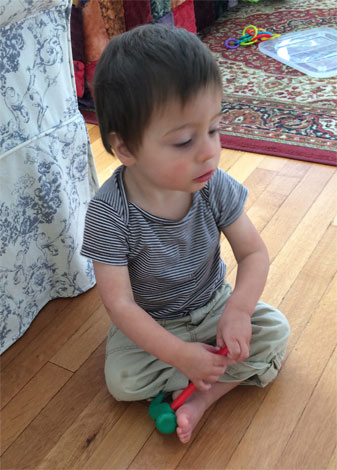There are two kinds of parents in this world: those who think Shel Silverstein’s classic picture book The Giving Tree is a heartwarming fable about unselfish mother-love, and those who think it’s a horrible sentimentalization of codependence and narcissism. Regular readers of this blog should be able to guess which camp I fit in.
The Giving Tree is an apple tree, described with female pronouns, who loves a little boy. As he grows to young adulthood through old age, the boy-man asks more and more from the tree, taking her leaves and apples to sell, her branches for a house, her trunk for a boat, till finally she is only a stump that he sits on when he is a tired old man. The tree gives all these things because it makes him keep coming back, and when he comes back, she is happy. Meanwhile, the boy never says a word of thanks, nor does he seem satisfied with the gifts for very long.
Christians who like this book have argued that it’s an allegory of God’s boundless love, which continues to be poured out on us despite our emotional fickleness and ignorance. I don’t buy that. If the Giving Tree is Christ, she’s Christ without the Resurrection. This tree, like my “one wild and precious life“, is a nonrenewable resource. When she’s chopped down, she doesn’t grow back. As far as we know, the boy doesn’t even plant her apple seeds to grow new trees.
This is a perilous model for Christian discipleship because it burdens a finite human being with satisfying infinite demands. The danger of a codependent Messiah complex is particularly acute in liberal churches where God’s direct, supernatural intervention is downplayed or doubted outright.
In church, we hear about stewardship of our material blessings and our fragile ecosystem, but are not sufficiently encouraged to be good stewards of the one resource on which all others depend: ourselves. Our time, energy, emotional health, material possessions, and solitude. Yes, solitude is a resource. That’s why Jesus didn’t heal broken legs and hand out fish sandwiches 24 hours a day; he had to withdraw into the wilderness to recharge his connection to God. By contrast, the Giving Tree is unable to endure her solitude. Are we also compulsive givers because we need the warm feelings of charity to plug the God-shaped hole in our heart? Afraid that God isn’t really there for us, we’ll do whatever it takes to bind another person to ourselves.
The recipient’s angle on the relationship is also problematic. The sentimental ideal of unquestioning generosity forestalls investigation into whether we’re actually helping. The Giving Tree’s boy does not seem to grow in happiness, empathy, or maturity as a result of her gifts. Let’s just say, I pity his wife.
Christians can fall prey to oversimplified ideas about duty and sacrificial love. This comes up in our domestic lives, and also in our efforts to follow Jesus’s mandate to help the poor. It saddens us to pass by the man lying on the pavement, someone who already seems cut off from society, and have nothing more personal to offer him than cold cash. However, a relationship based on the high-sounding principle “From each according to his ability, to each according to his need” can turn sour because both ability and need are elastic. In my family of origin, it soon became clear that the path to dominance was to inflate your needs and let your abilities atrophy. The Giving Tree’s boy is never challenged regarding the importance and consequences of his demands, so he never learns to live within his means.
Before commissioning us to involve ourselves in the lives of traumatized strangers, churches must do more to educate Christians about the user-enabler dynamic and give us spiritual permission to set safe boundaries. Remember, Jesus said to love your neighbor as yourself, not instead of.
Generosity without accountability breeds an attitude of entitlement to the lives and bodies of others. This attitude underlies patriarchy, child abuse, and domestic violence — pervasive social evils that are a prime contributing cause of the addictions, mental illnesses, poverty and homelessness that Christian charity targets. Social work has a place among the church’s programs, but our unique leverage point is practical theology: proclaiming a genuinely loving alternative to the relational patterns that keep the cycle of exploitation going.
